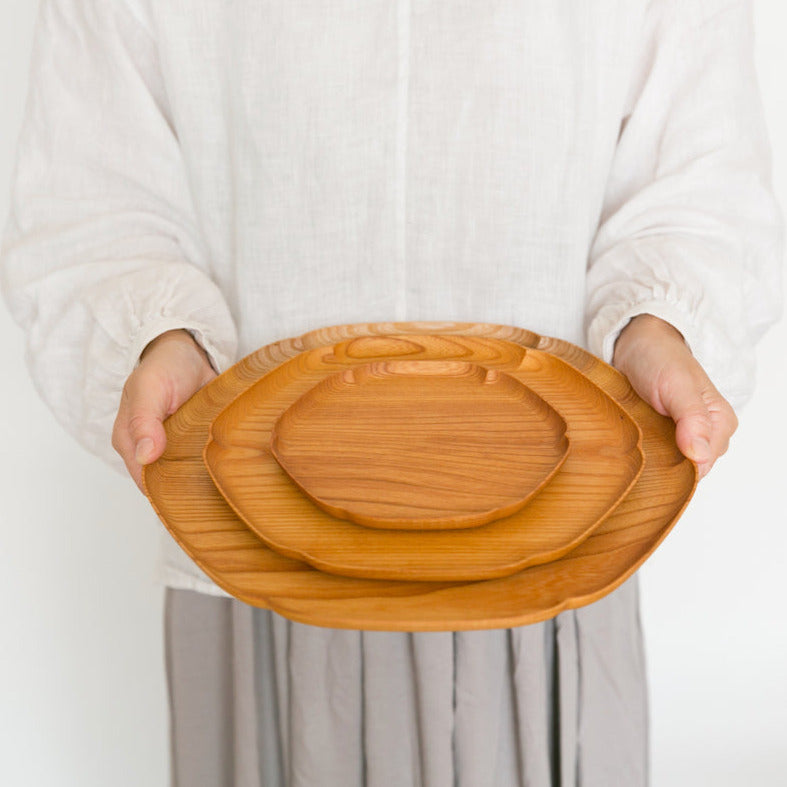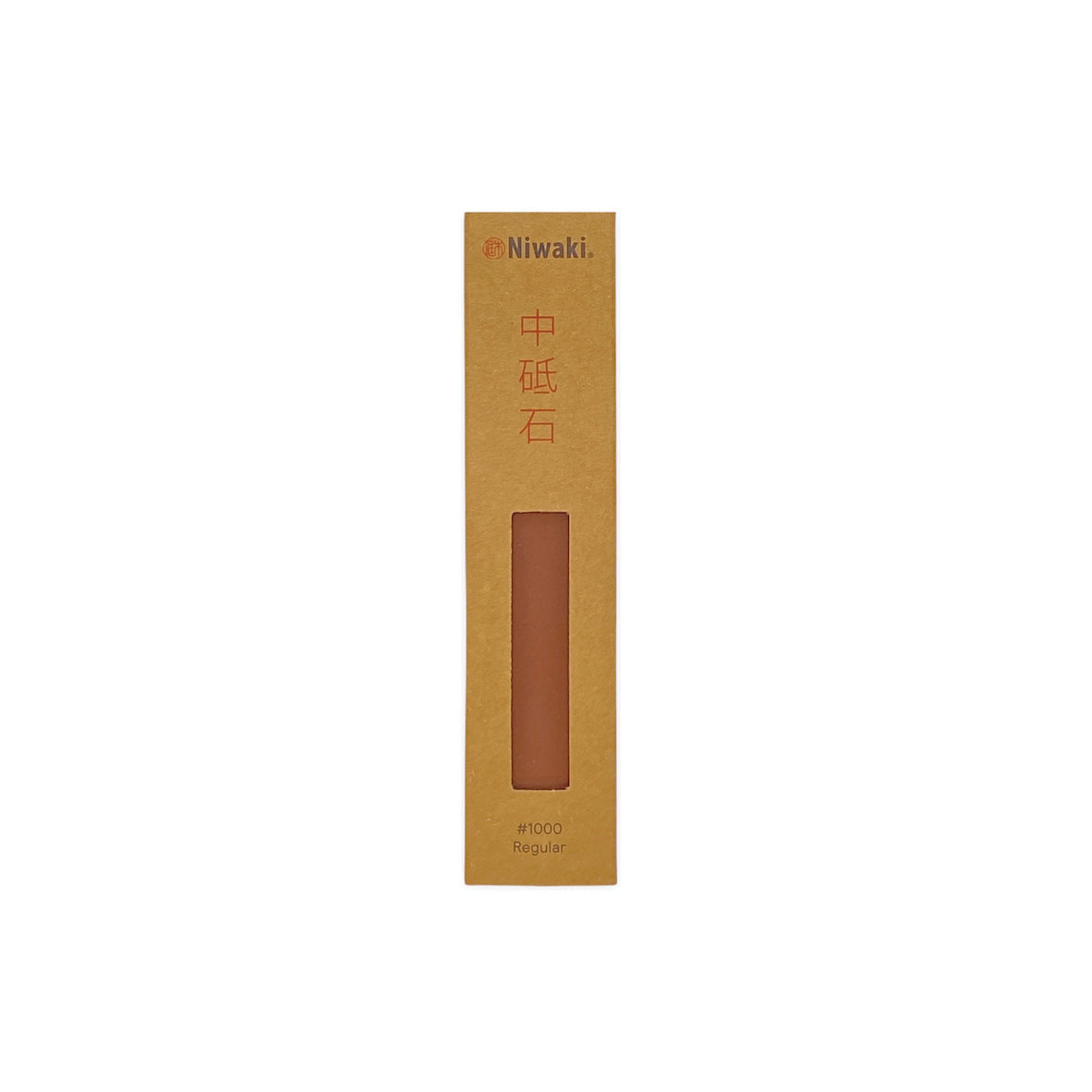
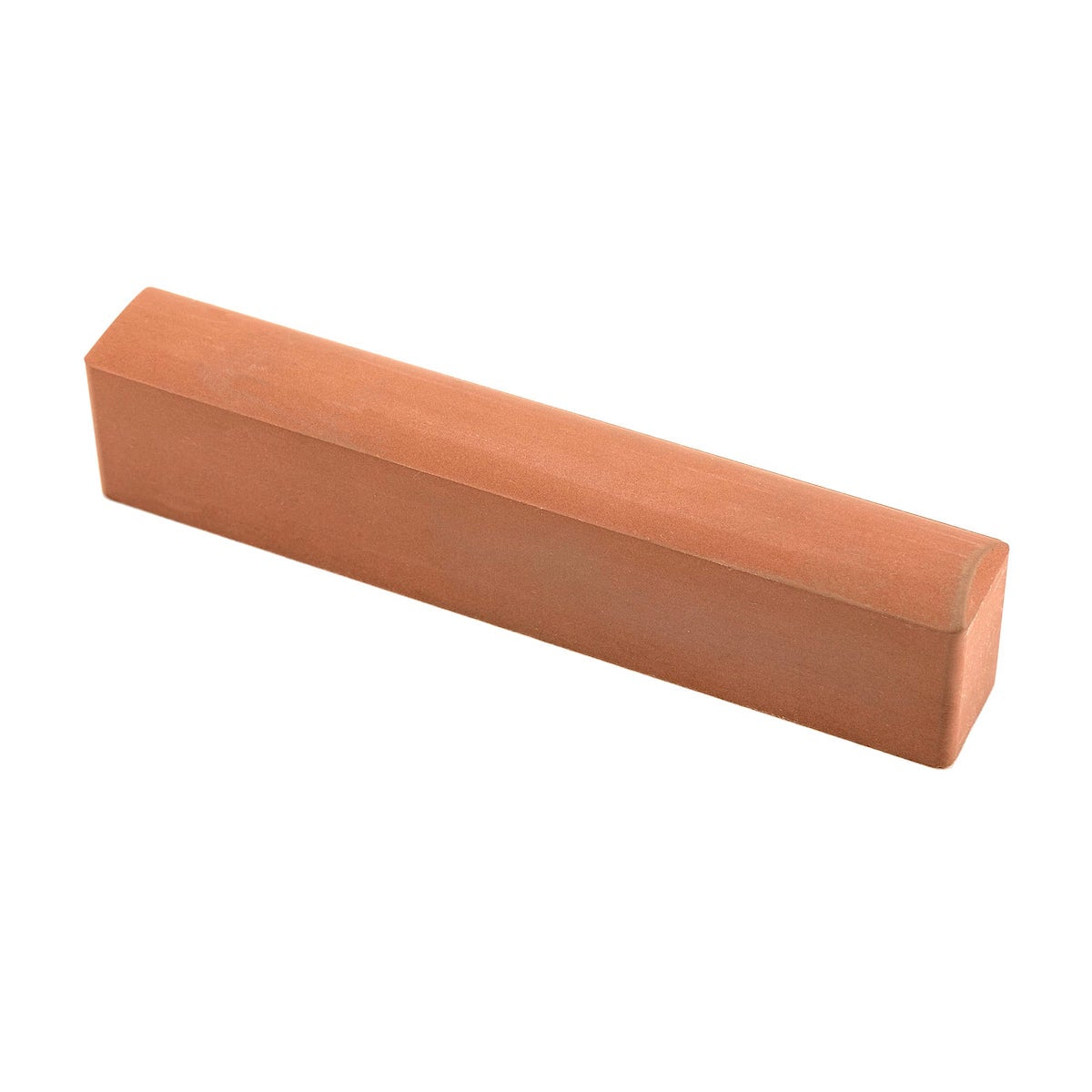
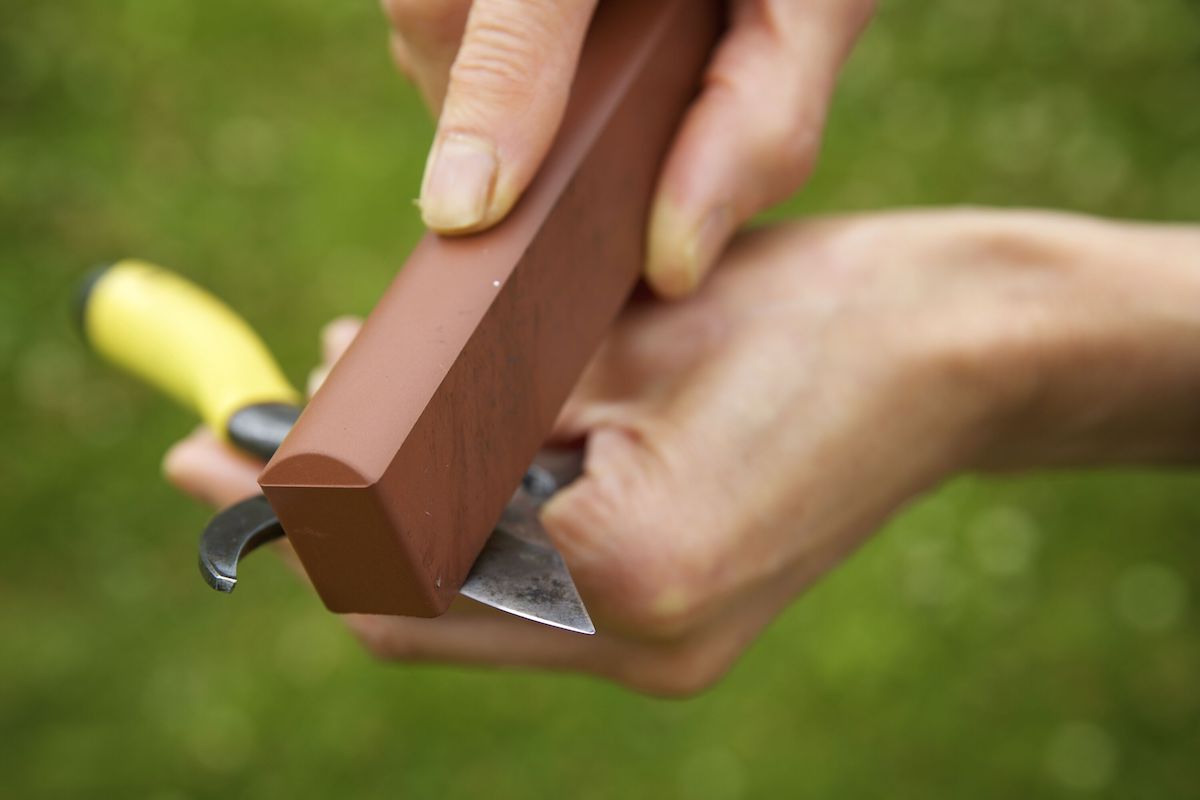
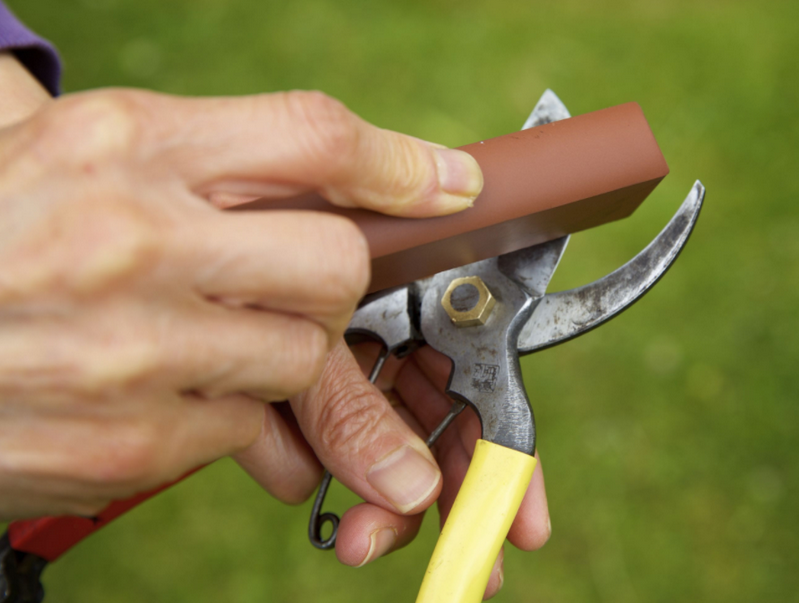
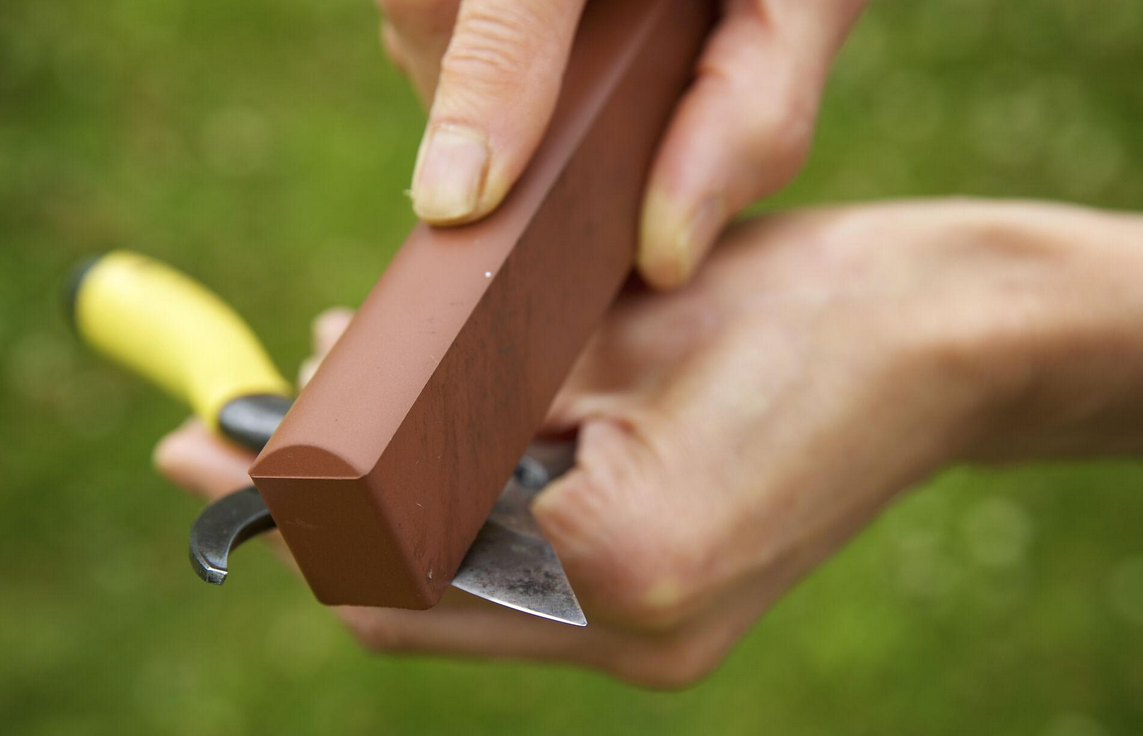
Grinding and honing stone #1000 | Japanese water stone
 Sofort lieferbar
Sofort lieferbar
Bereits in 2-3 Werktagen bei dir.
Kostenfreier Versand ab CHF 100,-
- #1000: fine, for regular sharpening - the most useful stone for daily sharpening .
- Use: shears, secateurs, loppers .
- Soak thoroughly before each use .
- Dimension: 131 x 20 x 23mm
- Weight: 136g
- Made in Osaka, Japan
Choose options





Beschreibung
High-quality sharpening stone especially for garden shears, but also for scissors, loppers and other sharp objects. The concave edge fits perfectly to the curve of the blade and they are small enough to get into tight places. Japanese whetstones (Toishi) are available with different grits. The higher the grit from the whetstone the finer the abrasive grain and the sharper the result.
Application:
Soak the stone in water for a few minutes before use, and keep it wet during use.
Use the concave edge of the stone by moving it from the pivot point towards the tip of the blade, following the curve.
Now turn the scissors over and use the flat side of the stone to smooth the burr on the inside of the blade, going over it slightly to create a very fine bevel.
.Use the convex side of the stone to clean the curved edge of the bypass.
Finally, clean and dry the scissors and rub them with camelia oil.
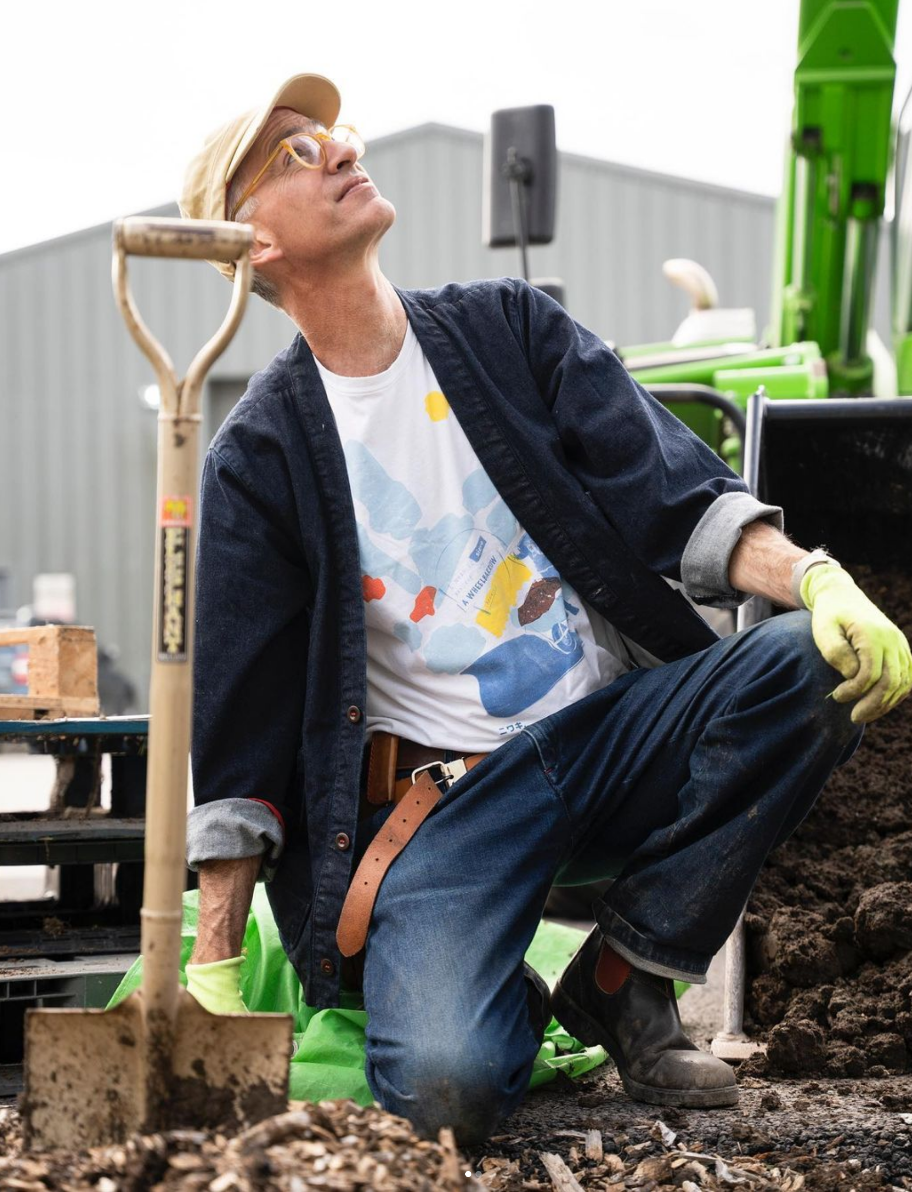
Die Story zu NIWAKI
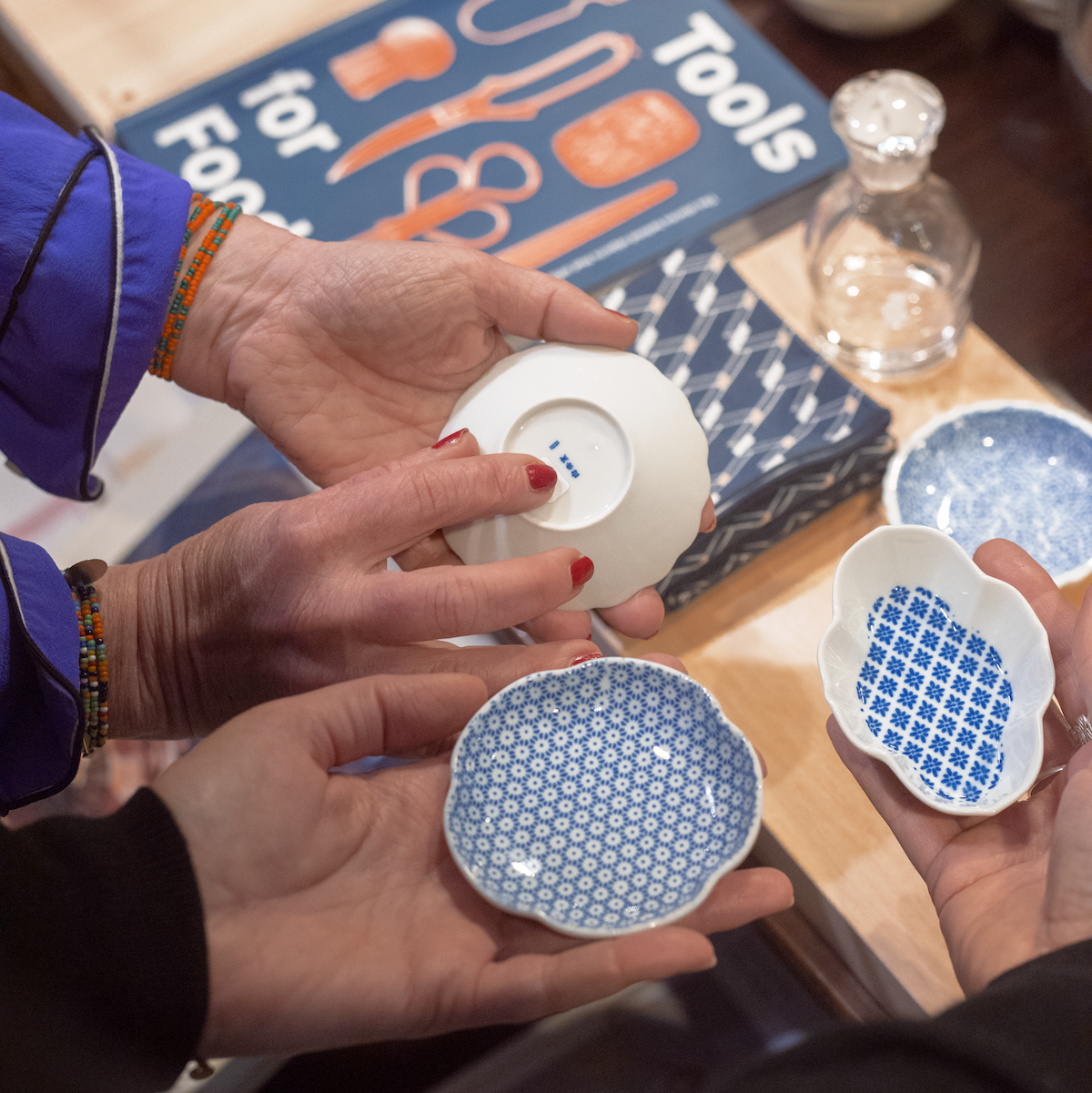
Wollt ihr wissen wer hinter ASANDRI steht
«Wir glauben, dass die Kombination von grossartigem Design und handwerklichen Können wichtig ist. Deshalb unterstützen wir Handwerker weltweit, um ihre Fähigkeiten und Handwerksbetriebe für viele weitere Generationenzu erhalten.»
Kontaktiere uns: info@asandri.com
